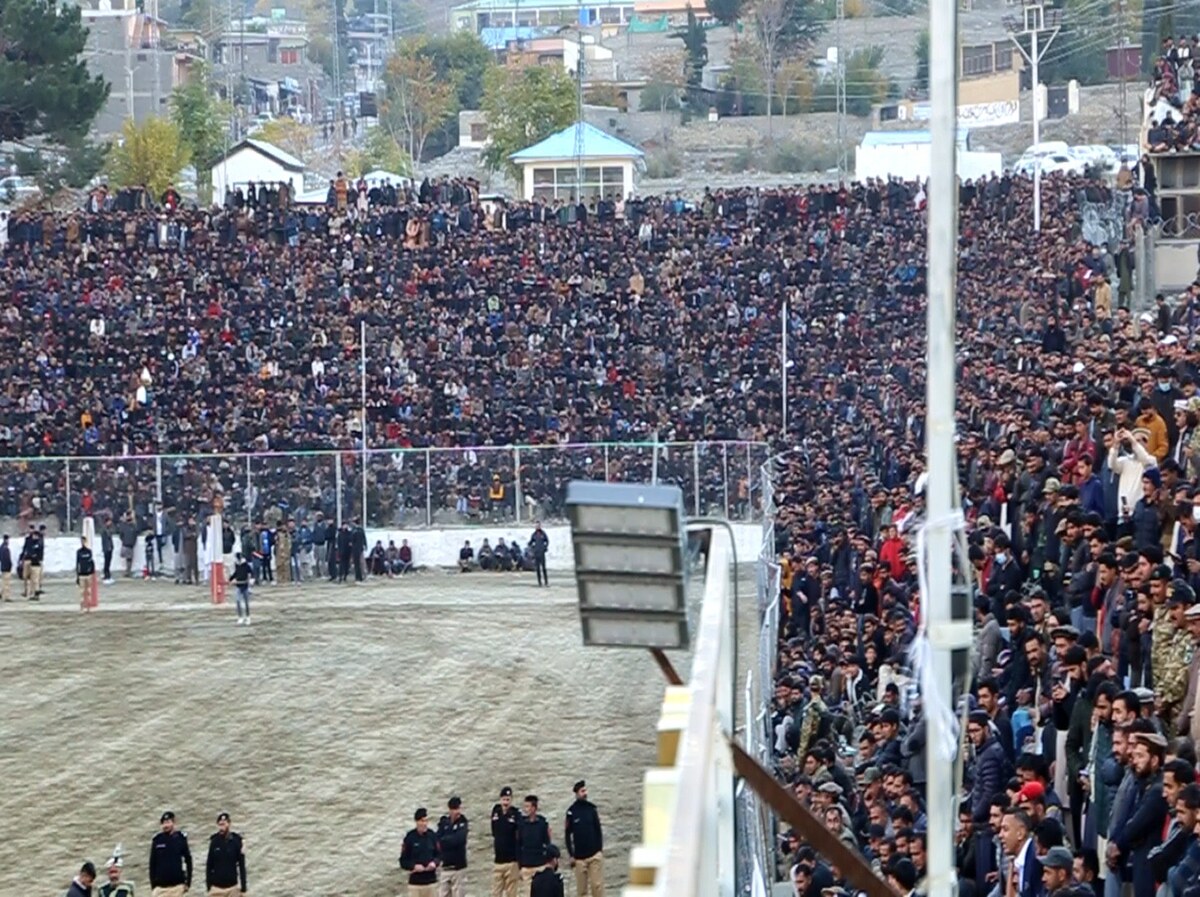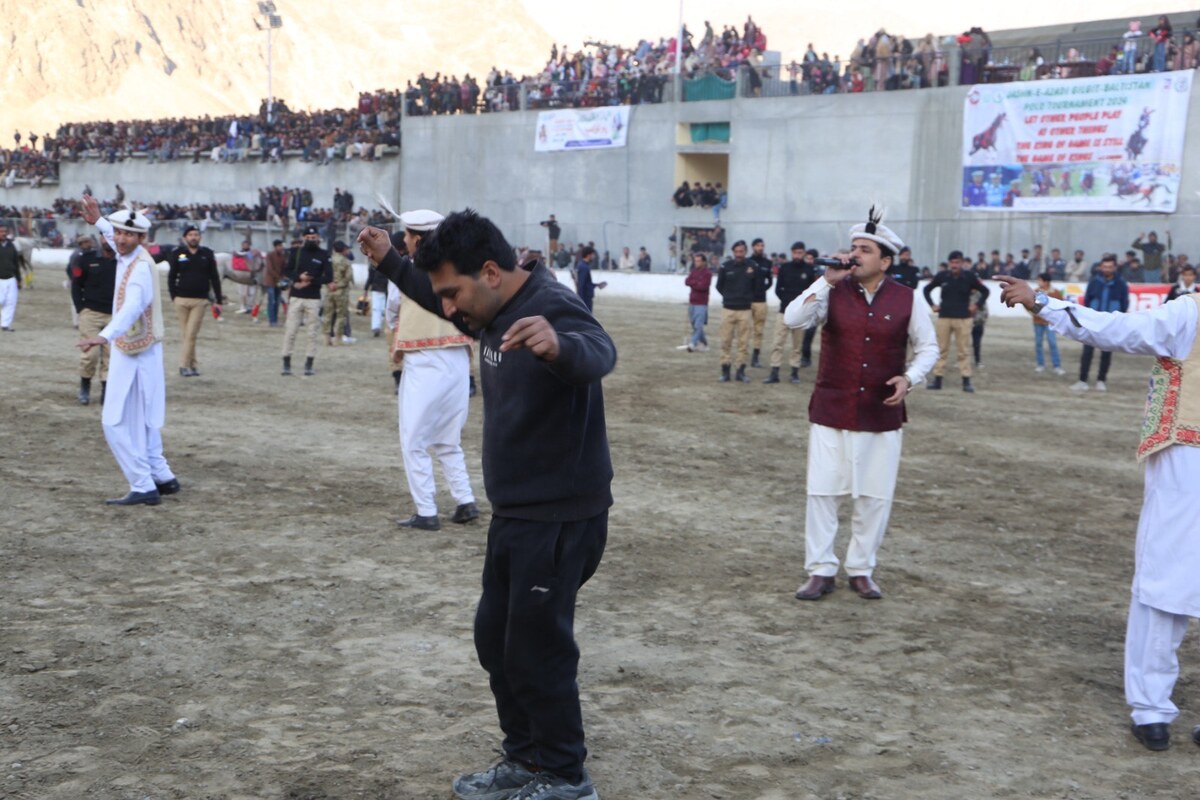ISLAMABAD: Pakistani expatriates on Sunday called for respecting the people’s mandate after the Feb. 8 national election and for the formation of a new government at the earliest to ensure political and economic stability in the South Asian country.
The election, which was marred by mobile network outages and delayed results, has sparked nationwide protests over alleged vote-rigging, with former prime ministers Nawaz Sharif and Imran Khan both claiming victory.
The situation has heightened uncertainty in the South Asian country that faces numerous challenges, including negotiations for a new International Monetary Fund (IMF) program to stabilize the struggling $350 billion economy after the current $3 billion program expires in March.
This week, Moody’s, an American financial services company that rates the creditworthiness of borrowers ranging from private enterprises to governments, said prolonged delays in the government formation may further compound Pakistan’s problems.
Some of the around 9 million Pakistani expatriates, who actively contribute to the socio-economic development of their homeland, believe the people of the South Asian country have spoken “loud and clear” in this election and their will needs to be honored.
“This was a record-shattering and game-changing election for Pakistan where people have spoken and spoken very loud and clear,” Imtiaz-ul-Hassan Bukhari, a 45-year-old Pakistani expatriate in Connecticut, United States (US), told Arab News.
“Now, there is a need to honor the democratic process and form the government as per the aspirations of the people to bring political stability.”
Bukhari said Pakistani people refused to vote for the “establishment-backed candidates” and decided to vote for their future.
The indecisive election presented no clear winner, with independent candidates loyal to Khan, winning the highest 101 parliamentary seats, according to official results.
The Pakistan Muslim League-Nawaz (PML-N) party of three-time former PM Sharif, who was seen as the military’s favored candidate in this election, came in second with 75 seats. Sharif denies being favored and the military, which has ruled Pakistan on several occasions, says it does not interfere in politics.
But political uncertainty persists in the country as independents made up the largest group in the legislature after the vote, but cannot form a government on their own, having run as individuals and not a party.
Khan, who is in jail on graft charges, and his PTI party allege the vote was rigged to keep him from returning to power. The caretaker government and the election commission have rejected the accusations.
Chaudhary Muhammad Ahmed, a 44-year-old expatriate working at a multinational company in Saudi Arabia, wanted the prompt establishment of a new federal government in Pakistan to address the challenges.
“The new government to be formed might face so many challenges and top of them is to provide jobs and employment opportunities to the youth coming out of the universities,” Ahmed told Arab News over the phone from Jeddah.
Other challenges for the upcoming government included stabilizing the economy, strengthening foreign exchange reserves, and bringing down inflation, according to Ahmed.
Qaisar Abbas Gondal, 41, said the post-election situation in Pakistan was “very concerning.”
“It has been more than 10 days, but still there is no clarity which shows the current system is not fit for purpose,” he told Arab News from London.
“Other countries are focusing on their policies to uplift people’s lives, but unfortunately in Pakistan, the [military] establishment is playing politics which is causing long-term international reputational damage to Pakistan.”
Gondal said the people of Pakistan had rejected conventional parties and voted for a “change,” adding the establishment must accept and respect the people’s decision “without any interference.”
“Only a publicly mandated administration can bring political and financial stability to Pakistan,” he said. “I think the current chaos will continue and there is no immediate hope of stability.”
Mansoor Ali, a 35-year-old Pakistani expatriate based in Qatar, said the expectations of overseas Pakistanis after the election were “exceedingly high,” given the urgent need for swift economic reforms.
“While there may be some uncertainty surrounding the formation of the next government, we strongly believe that rapid economic reforms are urgently needed,” he told Arab News from Doha.
Ali said Pakistan was confronted with numerous challenges, including economic insecurity, inflation and a lack of foreign investment.
“It is imperative for the new administration to address these issues promptly and effectively to pave the way for a brighter future for Pakistan and its citizens both at home and abroad,” he said.
Overseas Pakistanis believe that creating a politically stable and unified government while setting political differences aside was crucial in navigating Pakistan through its current challenges, according to Ali.
“Now is the time for coordinated action to guide Pakistan toward a prosperous, secure, and stable future, to create confidence among overseas Pakistanis in remittances and investments in our own country,” he added.
























